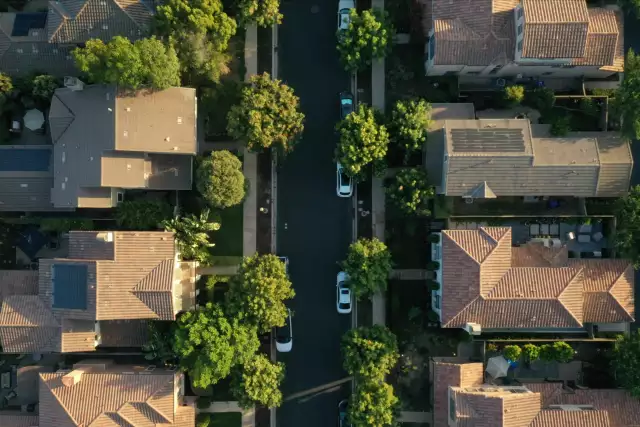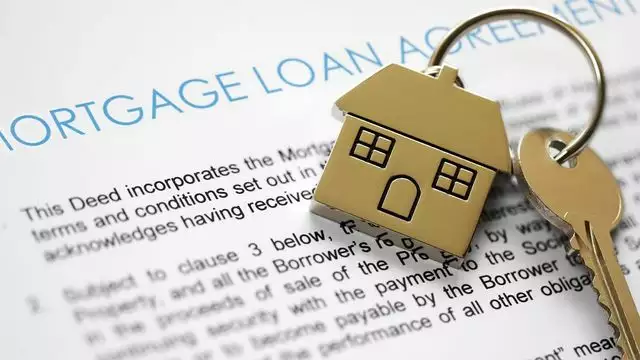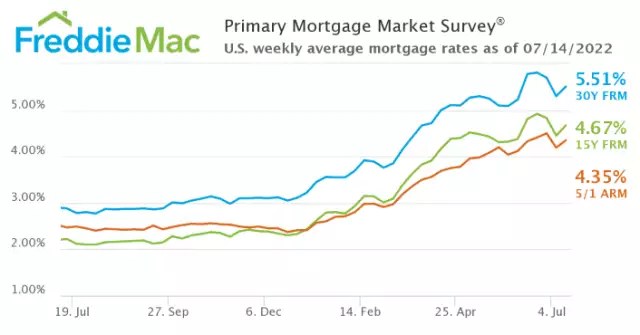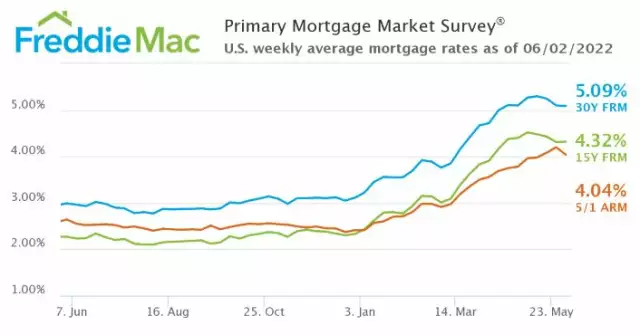Mortgage rates surge at fastest pace since 1987
Mortgage rates surge at fastest pace since 1987
On the heels of the latest federal funds rate hike, Freddie Mac reported mortgage rates accelerated at the fastest pace in decades, with the 30-year average now sitting at heights last seen in 2008.

The 30-year fixed rate surged 55 basis points to an average of 5.78% for the weekly period ending June 16, up from 5.23% seven days earlier, according to Freddie Mac’s Primary Mortgage Market Survey. The last time the 30-year rate leapt by as large a margin in a single week was in 1987, when Ronald Reagan was president and Bart Simpson made his first appearance on television. By comparison, the 30-year average just one year ago came in at 2.93%.
“These higher rates are the result of a shift in expectations about inflation and the course of monetary policy,” said Freddie Mac Chief Economist Sam Khater in a press release.
A series of economic reports over the past week, including higher-than-expected inflation numbers and rising pessimism among consumers, helped push rates higher.
The May Consumer Price Index, which showed inflation surging another 8.6% on an annual basis, put pressure on the Federal Reserve to act more aggressively toward quelling rising prices, leading it to raise the federal funds rate by 75 basis points on Wednesday. Previous signals had pointed to only a 50-basis-point increase. Expectations that a larger hike was in the offing drove the 30-year benchmark up prior to the announcement, said Paul Thomas, vice president of capital markets at Zillow.
“Following the CPI report, The University of Michigan consumer sentiment index reached a record low, as consumers are less confident in economic conditions even with very low unemployment,” Thomas said in a research blog post.
“Markets are beginning to show more concern that the Fed must take more aggressive actions to tame inflation, which would increase the likelihood of a recession as the economy slows down,” he added.
Although the news of the past week may have been the spark behind the eye-popping spike in interest rates, elevated levels are not necessarily bad for mortgage companies if they provide a level of predictability for consumers, according to attorney Marty Green, principal at mortgage law firm, Polunsky Beitel Green.
The rate volatility of the past few months increased risk in today’s environment, he noted. “[There's a] belief that the sooner we get to a stabilized rate environment, even at elevated rates, the better it will be for the industry,” Green said in a statement sent to National Mortgage News.
“Based on our conversations with clients, we believe many market participants will be pleased with the aggressive approach of the Federal Reserve, as there is some belief the Fed’s decision will more quickly bring stability to the home mortgage interest rate environment,” he added.
Khater expressed a similar sentiment, saying “higher mortgage rates will lead to moderation from the blistering pace of housing activity,” with the result being “a more balanced housing market.”
Along with the large jump in the 30-year average, the 15-year fixed-rate mortgage also saw a sizable increase, rising to 4.81% from 4.38% the previous week. A year ago, the 15-year average came in at 2.24%.
The 5-year Treasury-indexed hybrid adjustable rate headed upward as well to an average of 4.33%, up 21 basis points from 4.12% seven days earlier. In the same week last year, the 5-year ARM stood at 2.52%.






